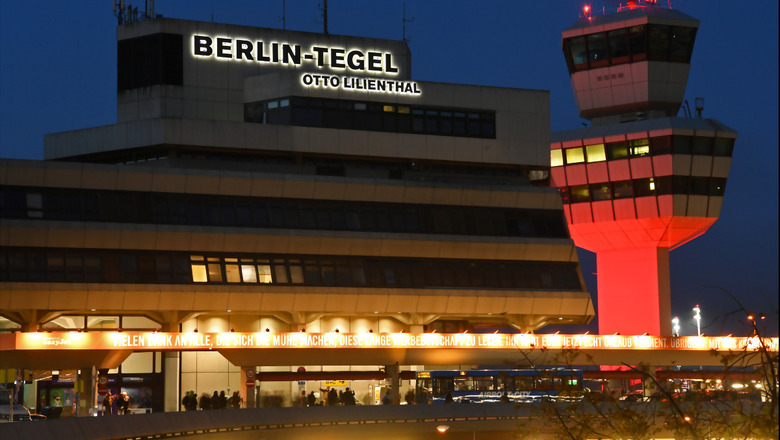
views
Berlin bid farewell Sunday to the German capital’s central Tegel airport, beloved by some and reviled by others, as it shifts all air traffic to a new hub on the outskirts of the city.
On Saturday, airlines moved their last planes stationed at Tegel to the new Berlin Brandenburg Airport Willy Brandt, which finally opened at the end of October nine years late and far above its original budget.
The final scheduled flight took off Sunday afternoon from Tegel, an Air France jet to Paris, a tribute to the first commercial flight from the airport flown by the airline 60 years ago.
During the Cold War when Berlin was divided into French, American, British and Soviet sectors, each had its own airport.
The oldest, the American sector’s Tempelhof Airport, was closed in 2008 and its main area is now parkland. Britain’s Gatow airport was shuttered in 1994, and the Soviet Schoenefeld Airport, located in the surrounding state of Brandenburg in what was communist East Germany, was expanded into the new so-called BER.
Tegel, a site used for airships in the early 1900s and later an air force training area during the Nazi era, was constructed rapidly in 1948 as a response to the Soviet blockade of West Berlin, when the Western Allies had to supply the city entirely by air.
It became a critical hub for the Berlin Airlift operation, which was able to break the Soviet blockade by 1949 a key moment in the Cold War that demonstrated the Western Allies’ resolve to stand beside West Germany.
The first commercial flights began in 1960, when Air France started regular service to Tegel.
Tegel’s facilities had become taxed, however, by the increased traffic to Berlin after German reunification when the city again became the capital. Area residents frequently complained of noise, and its runways were also unable to handle the largest jumbo jets typically used for long-haul flights, meaning that Berlin travelers would usually have to transfer in Frankfurt or other hubs before flying to North America or farther afield.
It was much beloved by business travelers and many others, however, for its convenient location near the center of the city, and compact layout that meant passengers could disembark a flight, pick up their luggage and be in a taxi within a few dozen meters.
The city government planned to close it in 2011, but the delays in the opening of BER meant that it had to be kept open.
Also Watch:
A majority of Berliners voted in a non-binding referendum in 2017 to keep Tegel open, but the city said the result couldn’t be implemented for legal and financial reasons.
The city plans now to turn the facility into a research and industrial park for urban technology in the future.
As a precaution in case there are any more kinks to be worked out at the new airport, however, Tegel will remain operational as a backup for another half-year but no more flights are planned.
Read all the Latest News, Breaking News and Coronavirus News here















Comments
0 comment